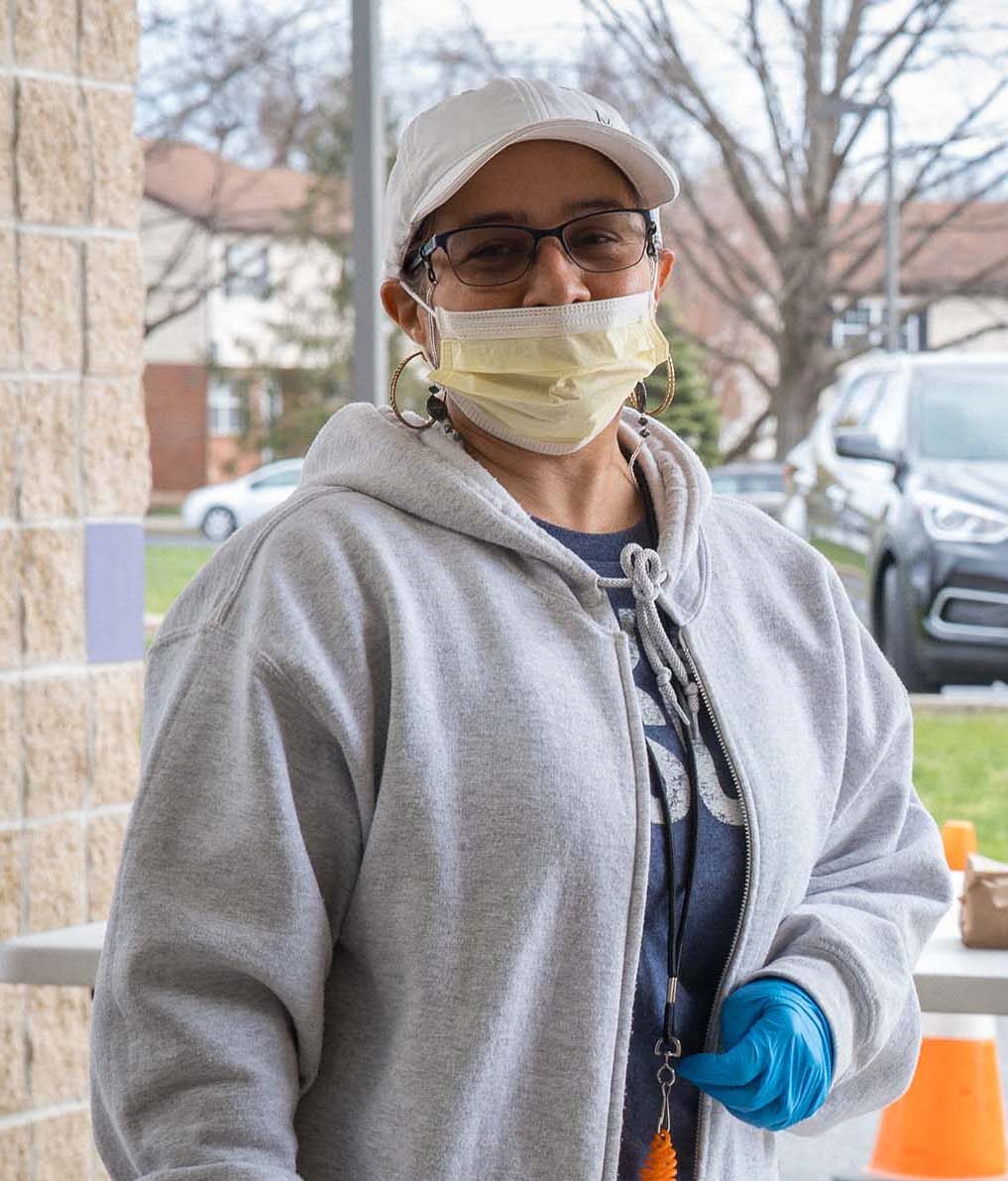People will forget what you said, people will forget what you did, but people will never forget how you made them feel. – Maya Angelou
Human Services
Trauma-informed approaches help human services providers across a range of topics and populations. It allows them to address the residual impacts of negative events their clients have experienced, and enables them to help clients feel safe, supported, and empowered.

Wear a Trauma Lens
Many people served by human service professionals have experienced trauma and toxic stress that shapes how they present and their ability to engage with services.Wearing a trauma lens and using universal precautions can help to create environments and relationships where people can heal and build their resilience while reducing the potential for unintentionally traumatizing them again.
Your words can heal or hurt ... what will yours do today?

Paradigm Shift
Shifting from “What’s Wrong with you” to “What happened to you”
All of us need a sturdy foundation and layers of support in our lives to thrive; that’s what creates a strong community. People involved with human service agencies may have struggles with substance use and mental health issues. They may look resistant, non-compliant, aggressive or disengaged. Without a trauma lens, these behaviors can easily be misunderstood, misdiagnosed and therefore, treated with interventions targeting the outward symptoms, rather than the hidden unresolved trauma. When we wear a trauma lens, we are able to recognize the trauma behind these behaviors and understand them as adaptive, developed as a survival response to environments or relationships that did not meet their needs for safety.
We can integrate trauma informed principles into our work to promote healing and recovery, and more effective partnership in achieving the goals of our mutual work together.
- Safety: create environments and relationships that ensure physical, cognitive, emotional, social and spiritual safety.
- Awareness: ensure that you are aware of trauma and can recognize it; provide services that are culturally- and gender-responsive
- Trust: cultivate trust through consistency, empathy, honesty, transparency and unconditional commitment.
- Empowerment: provide services that are respectful, strengths-based, and provide opportunities for voice and choice in decision making.
The first task of recovery is to establish the survivor’s safety. This task takes precedence over all others, for no other therapeutic work can possibly succeed if safety has not been adequately secured.—Herman

Trauma Informed Starts with You
Building from “What’s Strong in You”
Wearing a trauma lens means honoring the strengths and potential within each person, and working with them to increase their resilience. Resilience is influenced by things about a person, such as their DNA, personality, and life experience, and also by the good and bad things and resources in their life. Working on resiliency can help people to experience well-being and their ability to adapt even in the presence of stressors and hard things.
You can help to build the person’s resiliency by:
- Help them to identify what is important to them- values, interests, and strengths
- Connect them with services that meet their needs and with positive people, places, experiences or activities to build upon what is important to them
- Teach them calming skills to help regulate their emotions and behaviors
- Help them to see where they have control in each situation
- Frame adversity as a challenge that they can learn from instead of a threat
- Help them to identify what is important to them- values, interests, and strengths- and connect them with positive people, places, experiences or activities to build upon that
- Instill a sense of hope, ensuring that they limit their stress to specific situations instead of globalizing it; help them to remember that their difficulty is not permanent; help them to visualize a better future for themselves.

Good relationships are the key to healing trauma
Taking Care of You!
Listening to and absorbing the trauma stories and stressors of the people you serve has a toll on our own well-being that can result in compassion fatigue, vicarious trauma or burnout if we are not intentional about practicing the A-B-C’s of self-care.
- Awareness is the important first step. Take inventory of the different domains of well-being and identify where you are strong, and where you’d like to make improvements. Make time throughout the day to check in with yourself and how you are feeling.
- Balance is important to self-care. Boundaries are a critical component of maintain a work-life balance. The work is never done in human services, so be mindful of your weekly hours. Outside of work hours, spend time with others and have conversations that aren’t tied to work. Learn and practice time management skills. And recognize negative coping skills and work to avoid them.
- Connection is the final step to self-care. Develop a support system within your work that provides you with the opportunity to debrief difficult encounters. Invest in a social network outside of work that adds joy and meaning to your life.

How childhood trauma affects health across a lifetime
Human Services Resources
EXPLORE RESOURCESCompassion Resilience Training
Click the button below to our watch our Compassion Resilience Training on our YouTube channel. Compassion resilience is...
LEARN MOREOrganizational Self-Assessment: Adoption of Trauma-Informed Care Practice
The Organizational Self-Assessment is designed for organizations interested in improving their policies, procedures, practices, and social and physical...
LEARN MORETrauma-Informed Organizational Toolkit for Homeless Services
The Toolkit offers homeless service providers concrete guidelines for how to modify their practices and policies to ensure...
LEARN MOREFacebook Live – Creating Brave LGBTQIA+ Spaces with Your Child
Kim Ketterer, Youth Program Manager at Bradbury-Sullivan LGBT Community Center and advocate for LGBTQ youth, expands on what a brave...
LEARN MOREHow Early Childhood Experiences Affect Lifelong Health and Learning – Video
Check out this short video from Havard University’s Center on the Developing Child about the impact of ACEs...
LEARN MORE
